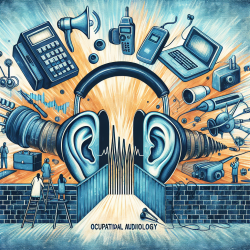Language discordance, where healthcare providers and patients do not share proficiency in the same language, poses significant challenges in delivering quality health services. This issue is particularly pressing in South Africa, a country with vast linguistic diversity. A recent study, "Navigating language discordance in public health care in rural South Africa: a qualitative descriptive study of occupational therapists’ perspectives," provides valuable insights into how occupational therapists navigate these challenges.
The study highlights four main themes:
- Concurrent Use of Strategies: Therapists often use multiple strategies simultaneously, such as informal interpreters, translanguaging, and non-verbal communication. Informal interpreters include co-workers, family members, and even other patients. Translanguaging involves using a mix of languages, gestures, and visual aids to convey meaning.
- Efforts and Self-Kindness: Therapists go the extra mile to learn local languages and adapt their methods, often investing time outside work hours. Recognizing their efforts and being kind to themselves is crucial for maintaining resilience.
- Impact on Therapy Process: Language discordance affects the quality of care, making it difficult to build rapport, set goals, and ensure comprehensive assessments. Ethical dilemmas arise, such as compromising confidentiality when using informal interpreters.
- Systemic Oppression: The dominance of English and Afrikaans in healthcare perpetuates language discordance. Educational systems often fail to prepare healthcare professionals adequately in local languages and cultural nuances.
To improve outcomes, therapists should consider these strategies:
- Embrace Multiple Strategies: Use a combination of interpreters, translanguaging, and non-verbal communication to enhance understanding.
- Invest in Language Learning: Encourage ongoing language education and immersion in local languages and cultures.
- Advocate for Systemic Change: Push for better language education in healthcare curricula and more resources for interpretation services.
Implementing these strategies can help occupational therapists navigate language discordance more effectively, ensuring better patient outcomes and ethical practice. For a deeper dive into the study, you can read the original research paper, Navigating language discordance in public health care in rural South Africa: a qualitative descriptive study of occupational therapists’ perspectives.










